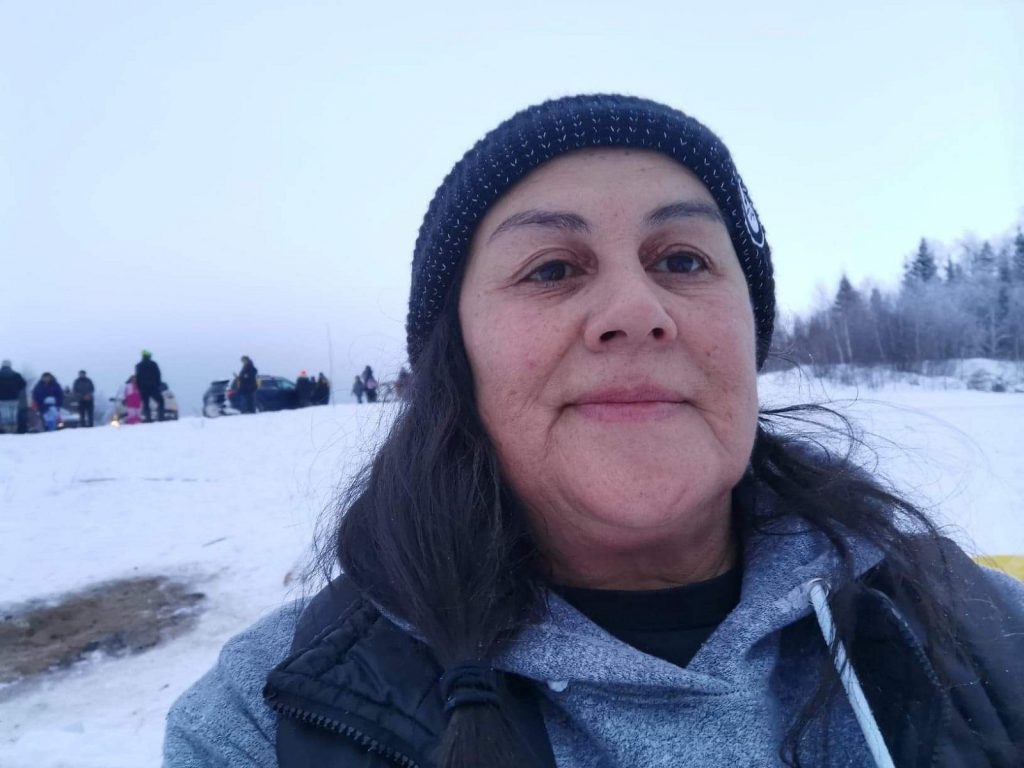Former Chief of Mishkeegogamang Says Don’t Ignore Your Cancer Screening Letters
by Vanessa Masters
 Connie Gray-McKay, former Chief of Mishkeegogamang First Nation and a breast cancer survivor, is encouraging women to not to ignore their cancer screening letters. She believes it is her calling to share her story so other members of her community will get screened for cancer.
Connie Gray-McKay, former Chief of Mishkeegogamang First Nation and a breast cancer survivor, is encouraging women to not to ignore their cancer screening letters. She believes it is her calling to share her story so other members of her community will get screened for cancer.When Connie Gray-McKay turned 50 in 2012, she received a letter from the Ontario Breast Screening Program (OBSP) telling her it was time to start screening for breast cancer with a mammogram. The OBSP is Ontario’s organized cancer screening program that sends invitation and reminder letters to age-eligible individuals who are due for cancer screening. Connie received her first letter when she turned 50, because breast cancer screening is for women aged of 50 and 74 years; they should complete a mammogram every two years. As a mother and Chief of her community, cancer screening wasn’t her main priority and she ignored that first letter, and the reminder letters that came later.
Fast forward five years to June of 2017. As Connie was sitting on her couch looking at the Chief nominations trying to decide if she would to run again, she reached up to scratch under her arm and that’s when she felt the lump.
“Within a couple of days I was sent to Sioux Lookout Meno Ya Win Health Centre for a mammogram, followed by a biopsy a week later,” said Connie. “I knew that the biopsy was necessary to get a proper diagnosis and hopefully that would mean an earlier, less invasive treatment. By the beginning of July, I was diagnosed with breast cancer and had some hard life decisions to make.”
Connie decided not to run for Chief again, allowing herself the time she needed to take care of her health. For treatment, she was given the option of a radical mastectomy and chemotherapy, or a full mastectomy. Connie decided to have a full mastectomy, a surgery where the breast is removed along with some of some lymph nodes in the underarm and surrounding area. Ultimately, she decided this was a better option for her because there was less travel time involved and was she able to return to her community. After a short month, she returned to work where the ‘Choose Life’ program she had proposed was launching which she felt she needed to be a part of.
Two years later, Connie is cancer free, and feels it is her job to continue to look out for the people of Mishkeegogamang First Nation. Initially, after the diagnosis, Connie was very emotional whenever she thought about what would come next and if she would be leaving her children, but after a special moment, she knows it was her calling to share her story. “At first, whenever I would think about cancer, I would think about the stresses and responsibilities in my life and I would get very upset. After a spiritual moment, the Lord spoke with me and told me to focus on Him. I knew I had to be strong for myself and for my children. As Chief, my children not only included my biological kids, but because chiefs are seen as parent figures, I was a mother of our entire community. I needed to look out for all my children and share my story,” she said.
Connie hopes that by sharing her story, others will not ignore their cancer screening letters and get screened for cancer. While breast cancer is part of Connie’s personal story, she also wants to remind you that there are other types of screening that are equally important. Colon cancer is 90% curable when caught early through regular screening. She adds, “The FIT* kits are easy and you can do it at home. For people living on First Nations communities, this is one test where isolation and travel aren’t an additional barrier so there is no reason not to do it”.
Connie is living her life to the fullest by enjoying the company of her grandchildren, continuing to work for the ‘Choose Life’ program in Mishkeegogamang, and sharing her story, encouraging people to get screened for cancer.
*FIT or Fecal Immunochemical Test is a take-home colon cancer kit for anyone age 50 to 74 with no first-degree (parent, sibling, or child) family history of colon cancer. Breast cancer screening is for women 50 to 74 years of age, with a screening mammogram every two years. Cervical cancer screening is for anyone with a cervix 21 to 69 years of age, with a Pap test every 3 years. For more information about cancer screening guidelines, visit www.tbrhsc.net/cancerscreening.